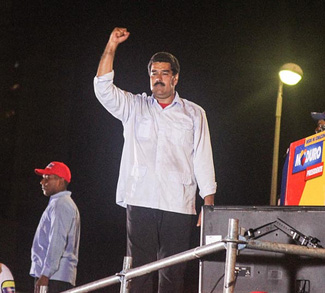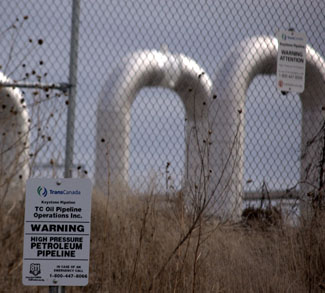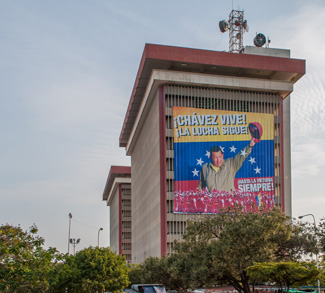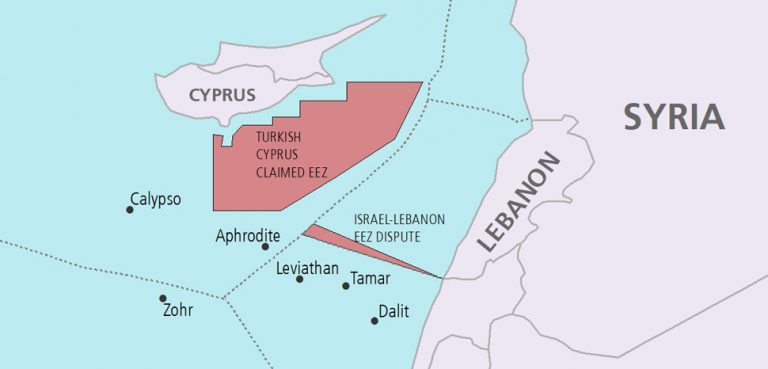The crux of Venezuela’s problem is a government revenue shortfall caused by a prolonged dip in global oil prices. Like the Chavez government that preceded it, the Maduro administration has presided over massive outlays on food and energy subsidies, state-sponsored construction projects, civil servant salaries, and imports. It has done so under the assumption that Venezuela’s energy wealth would be enough to pay the bills.
This was a dubious proposition back when oil was trading at over $110 a barrel. Now, with oil prices flirting with the sub-$40 range and no end to low prices in sight, the social spending of the Chavez/Maduro era has become a millstone that threatens to drag Venezuela into default and chaos.
Oil accounts for over 95% of Venezuela’s exports and 25% of its gross domestic product. But apart from the domestic economic slice it represents, it is also hugely important to the government as a generator of foreign currency. Venezuela is highly dependent on imports of food, medicine, industrial parts, consumer goods, etc, and they need to be paid for in USD, which is harder and harder to come by these days. As money for these imports dries up, industrial output grinds to a halt and products disappear from supermarket shelves across the country. One telling example of this dynamic at work is the Pepsi plant in Valencia, which shut down last week because its supplier stopped sending bottle caps and the materials needed to make cans.
The country’s foreign reserves have been tapped heavily over the course of the oil price crisis. They now stand at just $16.9 billion, their lowest level in years, and if current trends continue they will run dry sometime in first quarter 2016.




